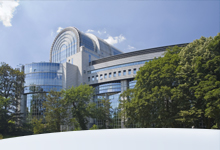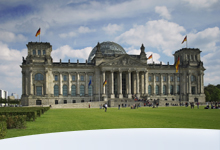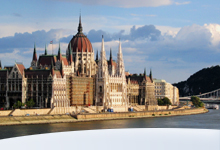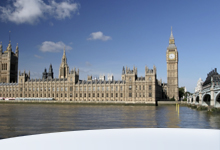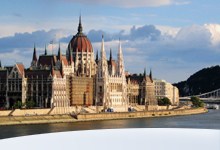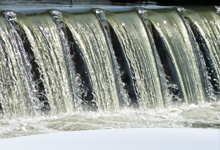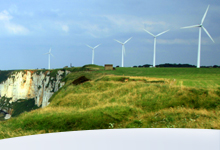Become a member
Join EUFORES here.
Opportunities and challenges of the European Energy Union – Energy Efficiency and Renewable Energy in Croatia
Parliament of Croatia, Zagreb
31 March 2017
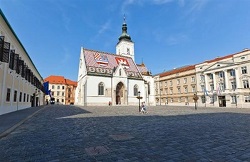
In cooperation with the European Affairs Committee of the Croatian Parliament, EUFORES held a parliamentary workshop on Energy Efficiency and Renewable Energy policies in the Parliament of Croatia.
Members of the Croatian and the European Parliament, government officials, representatives of the European Commission and experts in the field to shared their experiences and to discussed the energy transition's progress in Croatia.
Please find the agenda here.
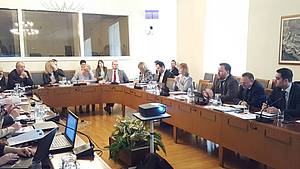
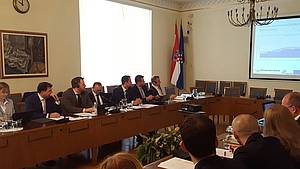
PowerPoint presentations
Asst.prof.dr.sc. Goran Krajačić, FSB, University of Zagreb: Regional cooperation in the Western Balkans: benefits of a transnational approach
Dean Smolar, Head of Energy Efficiency Authority, Center for Monitoring Business Activities in the Energy Sector and Investments: Planiranje i provedba nacionalne politike energetske učinkovitosti (Planning and Implementation of Croatian National EE Policy)
Julije Domac, Managing Director, REGEA - North-west Croatia Regional Energy Agency: How to encourage regional sustainable development through energy efficiency measures and renewable energy sources: The Croatian example
Christiane Egger, Deputy Manager, O.Ö. Energiesparverband and partner of the Energy-Efficiency-Watch 3 Project: “Energy Efficiency Watch: progress in energy efficiency policies”
(all rights of these presentations lie with the respective authors)
Summary of the event
The national workshop in the Croatian Parliament was organised as the eighth national workshop of the ten workshops foreseen in the Energy Efficiency Watch 3 project and as first national workshop under the Renewable Networking Platform (RNP). It was organized organised in cooperation with the European Affairs Committee of the Croatian Parliament and officially hosted by the Croatian member of Parliament Domagoj Ivan Milošević.
The first session of the event ran under the title: “The influence of the European Energy Union on the development of a sustainable and secure energy market in Croatia” and was opened by MEP Davor Škrlec. In his welcome and input speech Mr Škrlec focussed on Energy independence and sustainable development as political priorities of the EU. He pointed out that Croatia, as a member of the EU is obliged to actively work on its sustainable development. On a larger scope, he criticised the EU's Energy dependence. In order to be global leader in the fight against climate change, the EU would have to take an even stronger role now and advocate the fight against climate change globally. For Mr Škrlec the goal of the EU Energy Union is: To make energy affordable for citizens; Make the RES and EE more competitive; Create a single energy market; Involve citizens: without them it is impossible to bring change
As second speaker, Prof. Goran Krajačić from the Faculty of Mechanical Engineering and Naval Architecture of the University of Zagreb spoke about “Regional cooperation: Energy Generation Systems in the Western Balkans”. He started by underlining that Croatia is in a very good position, resources- and landscape-wise, to fast and successfully proceed with the energy transition. Hydropower, Biomass, Solar energy, wind and other alternative energy sources have a tradition in Croatia for many years (see ppt). In order to improve the existing Croatian energy strategy, Prof. Krajacic proposed a “5-dimension approach” after a Danish example:Decentralization, Diversification, Decarbonization, Decoupling, Deregulation
After this presentation, the workshop host, MP Domagj Ivan Milosevic gave a short intervention. He claimed that the EU should invest more in RES and new technologies and use elements of political changes as a chance for the EU to gain a global stance.
Following Mr. Milosevic, Mr. Domagoj Validžić, Head of the Energy Sector at the Croatian Ministry for Environment and Energy presented his thoughts on “Challenges on the way towards a sustainable economy in Croatia”, which he described as manifold. He explained that the social element of energy policy increases the difficulties when pushing for an accelerated energy transition. The necessary amount of energy needs to be produced/provided, while it should also be clean energy. According to Mr. Validzic, this demands for a broader energy consensus and more energy efficiency. Consumption needs to be optimized and the energy transition has to be linked to an increase in occupation and the creation of new jobs in technology. He warned, that clean energy cannot jeopardise productivity in Croatia.
The next speech was given by Mr. Axel Bierer, Policy Officer for Energy Efficiency at DG Energy, European Commission on the topic of “Renewable energy and energy efficiency policies in the European Union – how is Croatia contributing to the 2020 targets and beyond”. In his speech, he addressed common critique he experienced concerning an alleged lack of ambition regarding the targets in the clean energy for all Europeans package. As one reason for the rather low RES target, he said that at over 30%, the system costs would be significantly higher, which would lead to the loss of self-financing. Nevertheless, he said the Commission regards the 27% target, proposed by the EU Council as to low, as is would slow down progress. In addition, the Commission promotes a target that should be binding on EU-level (not necessarily on MS level)
Christiane Egger, Deputy Manager, O.Ö. Energiesparverband and partner of the Energy-Efficiency-Watch 3 Project followed Mr. Bierer presenting “Energy Efficiency Watch: progress in energy efficiency policies” in line with the EEW3 project’s research findings. Besides presenting overall findings of the monitoring of the implementation of EE policies in the EU, Ms. Egger also presented specific results for Croatia. She emphasised the commonly used narrative about the multiple benefits of EE. While, she did not criticise the model in general, she stresses that it is of importance to communicate to every actor by using the narrative or benefit most relevant to them. She stated that there are enough good reasons and any political party could pick the ones feasible for them. Further, she reminded the participants that the energy transition is no “piece of cake” and that all involved actors will have to work hard on it.
For the following speech, EE remained in the focus as Dean Smolar, Head of Energy Efficiency Authority at the Centre for Monitoring Business Activities in the Energy Sector and Investments spoke about “Planning and Implementation of Croatian National EE Policy “. Mr. Smolar criticised that EE has been a neglected topic in Croatia so far and therefore welcomed the initiative behind the workshop. He showed that Croatia is rather well-performing regarding EE in the buildings sector, but is lacking behind in industry and transport.
While he explained that the target arising from Art. 5 EED woul be fulfilled, he questioned the successful implementation of Art 7. He welcomed the extension of the Art. 7, as in his opinion it entails the most important targets for Croatia. Generally, and with regards to Croatia being the youngest Member State of the EU, its progress towards more EE should be evaluated positively, according to Mr. Smolar.
Julije Domac, Managing Director, REGEA - North-west Croatia Regional Energy Agency build the bride between EE and RES in his speech on “How to encourage regional sustainable development through energy efficiency measures and renewable energy sources: The Croatian example”. Mr. Domac promoted the idea to engage cities and regions more and involve them as much as energy politics as possible, as they are the first ones to serve the citizens. In his organisation’s projects they have largely supported local schools, kindergartens and private households, with great success and acceptance. He claimed that cities and regions should not be treated as external stakeholders, but as part of the system.
The last input speech was given by Prof. Tomislav Capuder from the Faculty of Electrical Engineering and Computing at the University of Zagreb on the topic “The multiple benefits of Energy Efficiency in Croatia”. Mr. Capuder suggested that, in order to adequately make use of Croatia’s potential, the multiple benefits of EE have to be promoted to each individual stakeholder. He supports a cross-sector integration, where the focus lies with the end user, while the whole system is still taken into consideration. Croatian, according to Mr. Capuder, does not recognise the consumer so far. This must change in the future as it is expected that a large part of electricity will be produced with/by the end user.
After a short coffee break the input speeches were followed by a panel debate that included Davor Škrlec, Axel Bierer, Dean Smolar, Christiane Egger and Domagoj Validžić. The debate under the title “What does the Croatian sustainable energy future look like?” was chaired by Jan Geiss.
Organised in cooperation with the European Affairs Committee of the Croatian Parliament.
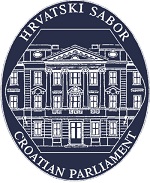
Organised in the framework of
![]()
Co-financed by*

* The sole responsibility for the content of this event lies with the authors. It does not necessarily reflect the opinion of the European Communities. The European Commission is not responsible for any use that may be made of the information contained therein.
Supported by

